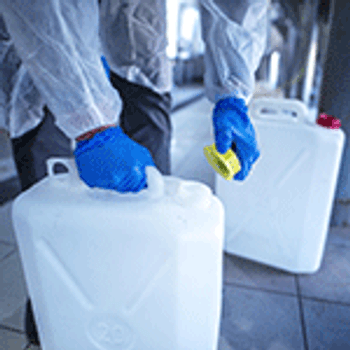
EMA’s strategy for regulatory science has divided opinion amongst various industry bodies.

EMA’s strategy for regulatory science has divided opinion amongst various industry bodies.

Organizations involved in aseptic and sterile processing activities must make an effort to comply with current good manufacturing practices.

FDA’s EUA provides the first new treatment for COVID-19 patients with severe symptoms.

Discovery of carcinogenic nitrosamines in three of the world’s most widely prescribed drugs is driving efforts to better detect, control and prevent their generation in APIs and finished drug products.

The approval was based on pharmacokinetic data, the relationship of exposure to efficacy, and the relationship of exposure to safety.

The statement, published by the International Coalition of Medicines Regulatory Authorities, outlined its commitment to a strengthening of global collaboration in the fight against COVID-19.

The approval was based off of positive results from a Phase III study that showed patients 70 years or younger treated with the BTK inhibitor lived longer without disease progression.

The company is recalling the product because of out-of-specification results for high molecular weight polymers.

The company is voluntarily recalling 13 lots of the product because of particulate matter found in reserve sample vials.

With hundreds of clinical trials for potential coronavirus therapies in the works concerns have mounted about the emergence of conflicting data, useless results, and wasted efforts from multiple overlapping efforts.

The company is recalling Tetracycline HCl Capsules USP, 250 mg and 500 mg, 100-count bottles because of failed dissolution specifications.

The guidance document describes the agency’s temporary policy for the compounding of drugs during the COVID-19 pandemic.

Experts to discuss strategies for ensuring supply of quality drug products during a pandemic in April 28 online event.

The agency sent warning letters to three more companies for selling unapproved products claiming to treat COVID-19.

The task force will assist in the developing, authorizing, and monitoring of treatments of COVID-19.

The guidance answers questions on changes made to the regulatory framework to address challenges during the COVID-19 pandemic.

EMA's CHMP has recommended the use of remdesivir, an investigational antiviral medicine, in compassionate use programs across the European Union.

The agency has been tasked with coordinating efforts to mitigate shortages of medicines within Europe during the COVID-19 pandemic.

The agency sent a warning letter to Genesis II Church for marketing fraudulent chlorine dioxide products the company claims treats and prevents COVID-19.

FDA is encouraging alternative insulins and challenging anticompetitive practices.

Addressing data integrity, quality culture, aging facilities, investigations/corrective actions and preventive actions, and risk management is key when conducting audits, says Susan J. Schniepp, executive vice-president of post-approval pharma and distinguished fellow, Regulatory Compliance Associates.

Because conventional cleaning methods can risk product loss, biopharmaceutical manufacturers are often reluctant to use PDE/ADE limits to validate cleaning processes.

As the coronavirus pandemic unfolds, Pharma must practice science over hype.

With ingredients sold to multiple markets, excipient manufacturers must understand the different regulatory requirements for pharma vs. food.

Specialty pharmaceutical company, Diurnal, has announced that the marketing authorization application (MAA) for Chronocort has passed validation with the European Medicines Agency (EMA).